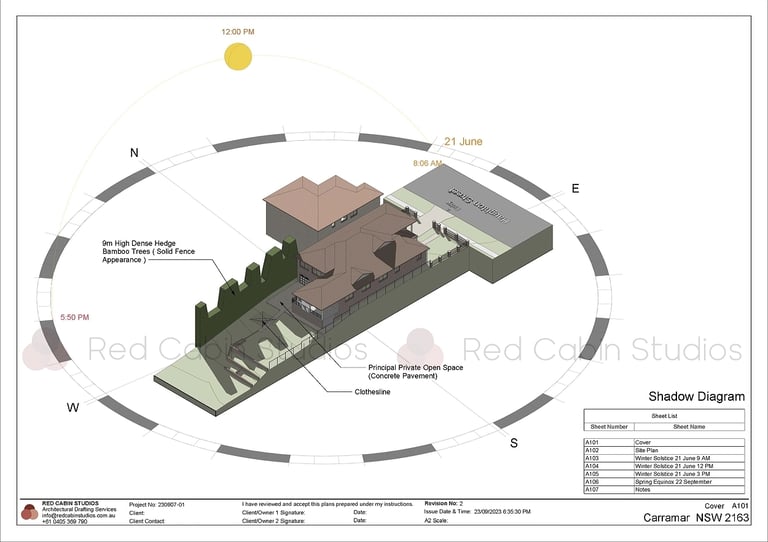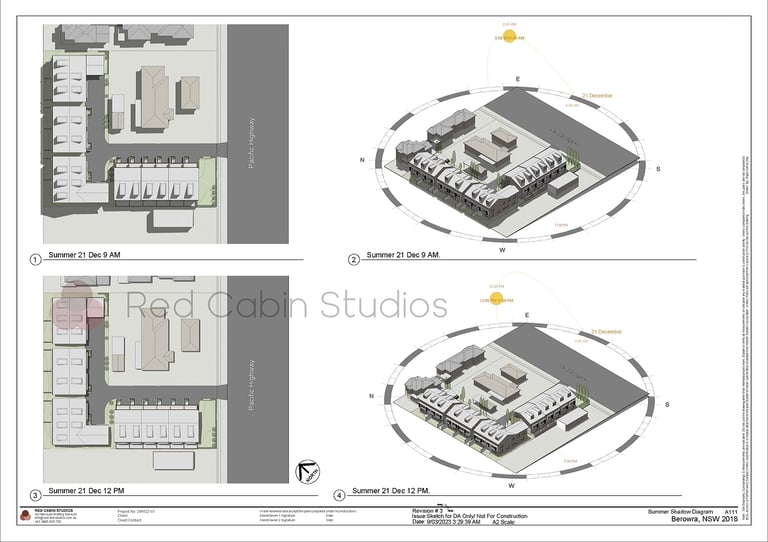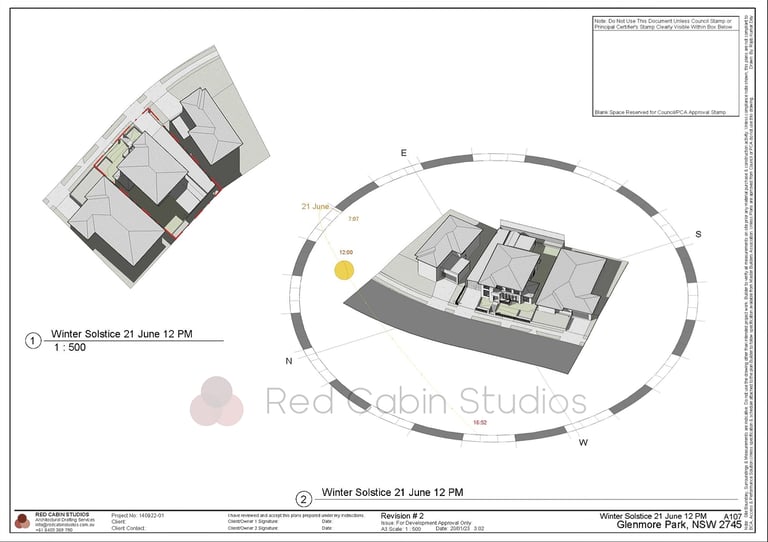Shadow Diagram
Why are Shadow Diagrams Important?
1. Assessing Impact on Surrounding Areas:
Shadow diagrams help assess the impact of proposed constructions on neighboring properties, especially in terms of solar access and natural light. They are vital in densely populated areas where new developments can significantly affect the living conditions of surrounding residents.
2. Compliance with Regulations:
Most local councils and planning authorities require shadow diagrams as part of the development application process. These diagrams demonstrate compliance with guidelines set for solar access, overshadowing, and daylight access, ensuring that new buildings coexist without negatively impacting the surrounding community.
3. Design Optimisation:
For drafts-man and builders, shadow diagrams are instrumental in optimising the design of a building. They provide insights that can lead to adjustments in height, orientation, and layout to minimise adverse shadow effects.






What Do Shadow Diagrams Include?
A comprehensive shadow diagram typically features:
Scaled Illustrations: Clearly showing the extent of shadows cast by the proposed building at different times of the day and year.
Seasonal Variations: Demonstrating shadows during critical dates like solstices and equinoxes to understand the worst and average cases.
Neighbouring Context: Including outlines of neighbouring buildings, open spaces, and windows to show the shadow impact accurately.
Orientation Markers: Indicating cardinal directions for precise interpretation.
Our Services
At Red Cabin Studios, we specialise in creating detailed and accurate shadow diagrams for your development applications. Our services include:
Customised Shadow Diagrams: Tailored to meet specific council requirements and planning guidelines.
Expert Consultation: Guidance on how to reduce negative shadow impacts and improve building designs for better community integration.
Advanced Modelling Techniques: Utilising the latest software and technology for precise and reliable results.
Get in Touch
For more information or to discuss your project needs, contact us at any time. Our team of experienced professionals is ready to assist you in navigating the development approval process with ease.
Understanding Shadow Diagrams in CDC Approval
A shadow diagram is a crucial component in the development approval process, providing a visual representation of a building's potential shadow impact on its surrounding environment. This tool is essential for council, developers and planners to ensure that new constructions adhere to CDC regulations and maintain a harmonious balance with the existing urban landscape.
